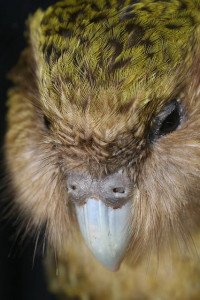Writing in the Dominion Post, Victoria University Wellington Associate Professor of Conservation Science Wayne Linklater looks at the economics of our native wildlife, saying “Wildlife conservation should not be a charity but a business.”
An excerpt (read in full here):

The benefits of rent-a-kakapo
New Zealand’s wildlife – whales, dolphins, red deer, tahr, albatross, kiwi, tuatara, and fish – attract tourists. And the tourists who come to see or hunt our wildlife stay for longer and spend more, especially in our provinces and small towns, than those who come for our casinos and high-end hotels.
In Australia the economic value of koala alone was estimated at A$1.1 billion (NZ$1.13b). There are no estimates for how much wildlife contribute to New Zealand’s economy, but if they contribute as much to our NZ$10b tourism industry as they do to Australia’s, then our wildlife are worth about NZ$1b in tourist spending.
…
Many zoos and wildlife centres would like to have a real life kiwi, kakapo or kokako in their collections and they should pay handsomely for the privilege. Our wildlife could be leased to the world’s public and private zoos and wildlife parks. China has mastered this.
It has been several decades since China gave away a giant panda. Nowadays they lease them to the world’s zoos, generating millions of dollars in foreign revenue.
What we need is a legitimate market that can be supplied sustainably. Wildlife conservation should not be a charity but a business. The New Zealand taxpayer should not be a wildlife philanthropist, but a wildlife investor.